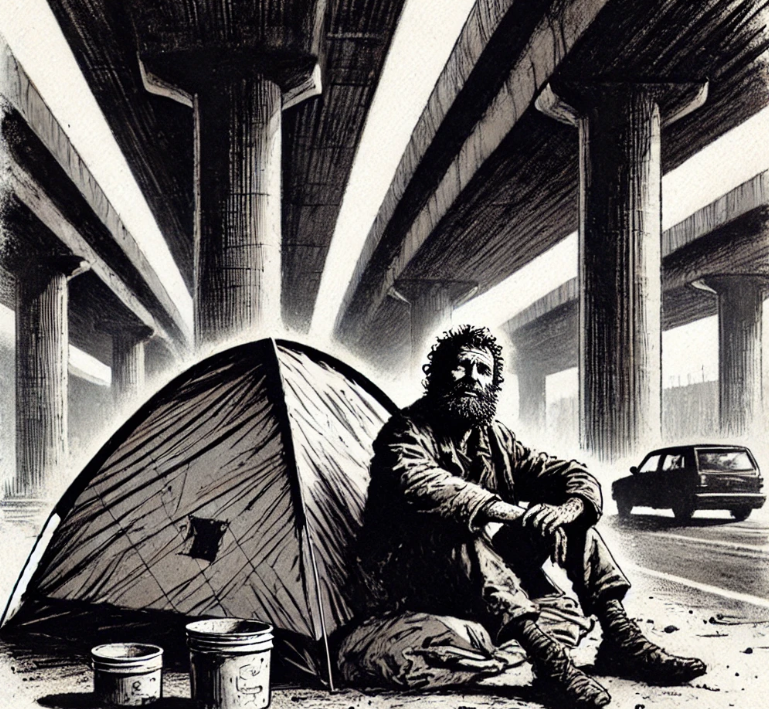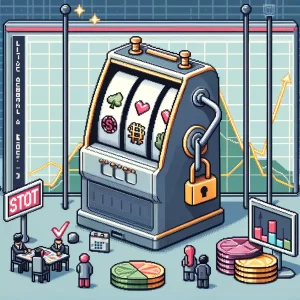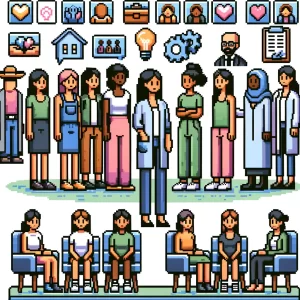
Homelessness and Violence in LA
Living without a home is a harsh reality for thousands of people in Los Angeles County. A new study sheds light on just how brutal this existence can be, revealing shocking levels of discrimination and violence faced by those experiencing homelessness. Understanding these findings is crucial for anyone who cares about public health, social justice, and the well-being of our most vulnerable neighbors.
The Hidden Plight
Imagine waking up every day knowing you might face abuse simply because you don’t have a home. For many in Los Angeles County, this isn’t a nightmare—it’s their daily reality. Recent research surveyed 332 people experiencing homelessness (PEH) in LA, revealing that a staggering 31.8% face discrimination almost daily. Over half of the respondents encounter such bias at least once a week. The reasons? Often, it’s because they don’t have stable housing.
Discrimination isn’t the only issue. The study found that nearly 16% of these individuals experienced physical violence, and 7.5% faced sexual violence in just the past month. These figures are alarmingly high when compared to the general population, where past-year physical violence is about 3%, and sexual violence is just 0.24%.
Who Is at Risk?
Discrimination and violence aren’t equally distributed among all homeless individuals. Those sleeping outdoors or in vehicles, using drugs weekly, or dealing with severe psychological distress are more likely to be targeted. The study also highlighted that non-male individuals and those with physical health conditions face higher risks of sexual violence.
Interestingly, being in a shelter doesn’t necessarily provide safety. Sheltered individuals were found to be at increased risk of physical violence, suggesting that even places meant to offer refuge might not be safe.
The Bigger Picture
Why should this matter to us? Because discrimination and violence aren’t just immediate harms; they have lasting impacts on health. When people are constantly threatened, it takes a toll on their mental and physical well-being.
The study’s findings are a stark reminder that homelessness isn’t just about lacking a roof over one’s head. It’s about facing daily battles against prejudice and danger. This reality underscores the urgent need for policies that address these deeper issues, providing not just housing, but safe and supportive environments for the homeless.
The Path Forward
So, what can be done? First, improving the safety and conditions of shelters is critical. Ensuring these spaces are truly safe havens can help reduce the risk of violence. Additionally, integrating mental health services and substance use support into shelters and housing programs can address some of the underlying issues that make individuals more vulnerable.
The study also suggests that broader societal changes are needed. Reducing stigma around homelessness, mental illness, and substance use can help create a more supportive environment. This means not just changing policies, but also changing minds and attitudes.
Join the Conversation
- Have you ever witnessed or experienced discrimination or violence in your community? How did it make you feel, and what actions did you take or wish you could have taken?
- What do you think can be done to make shelters and public spaces safer for everyone, especially the most vulnerable?
Share your thoughts in the comments below or join the discussion on social media.
Conclusion
Homelessness in Los Angeles County, and indeed across the country, is a pressing issue that goes beyond the lack of shelter. The high levels of discrimination and violence revealed by this study highlight the urgent need for comprehensive solutions. By improving shelter safety, integrating health services, and changing societal attitudes, we can begin to address the root causes and effects of homelessness.
Understanding and acting on these findings is vital for public health practitioners, researchers, and anyone committed to social justice. Together, we can work towards a future where everyone, regardless of their housing situation, is treated with dignity and respect.
Empower Your Network – Subscribe and Share!
Unlock key insights with ‘This Week in Public Health.’ Subscribe for free and share to drive change as part of a dedicated community.



